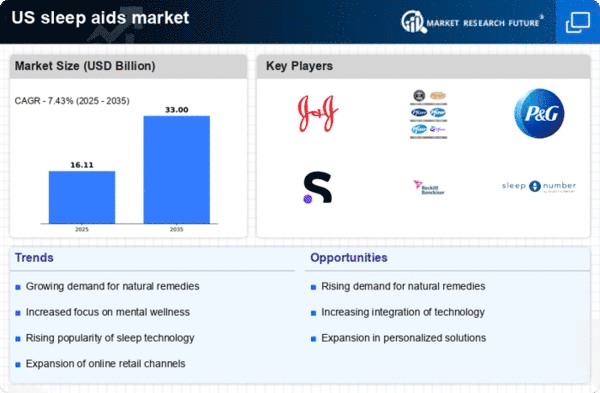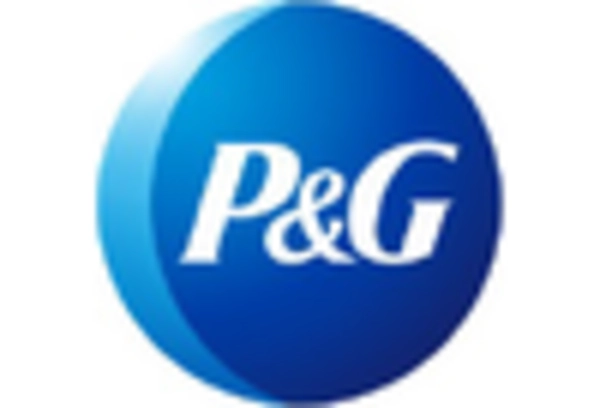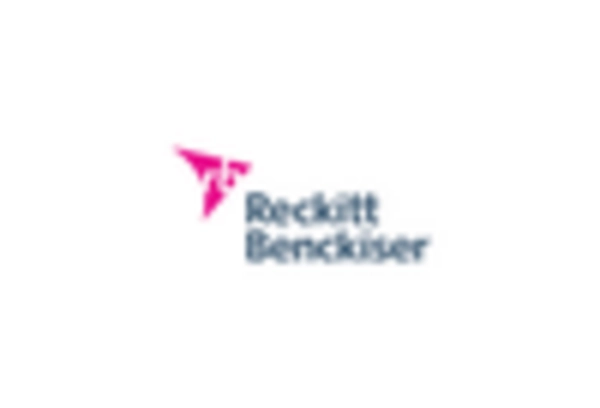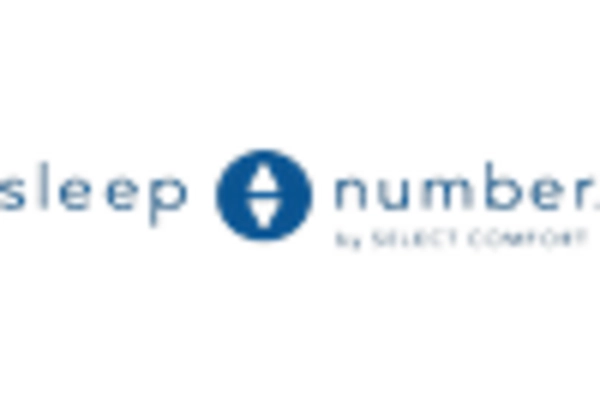Aging Population
The aging demographic in the US is a significant driver for the sleep aids market. As individuals age, they often experience changes in sleep patterns, leading to a higher incidence of sleep disturbances. Reports indicate that nearly 50% of older adults experience insomnia, which propels the demand for sleep aids. The sleep aids market is adapting to this demographic shift by offering products tailored to the needs of older consumers, such as melatonin supplements and sleep-enhancing devices. This trend is expected to contribute to a compound annual growth rate (CAGR) of 6% in the sleep aids market over the next five years, reflecting the increasing focus on sleep health among the elderly.
E-commerce Growth
The rapid expansion of e-commerce platforms is transforming the way consumers access sleep aids in the US. With the convenience of online shopping, consumers are more inclined to explore a variety of sleep aid options from the comfort of their homes. The sleep aids market is capitalizing on this trend by enhancing online visibility and offering direct-to-consumer sales. Reports indicate that online sales of sleep aids have increased by 25% in the past year, reflecting a shift in consumer purchasing behavior. This growth in e-commerce is expected to continue, potentially leading to a more competitive landscape within the sleep aids market.
Rising Stress Levels
The escalating stress levels among the US population are likely to have a profound impact on the sleep aids market. Factors such as work-related pressures, financial concerns, and social dynamics contribute to heightened anxiety, which in turn affects sleep quality. Studies indicate that around 30% of adults report difficulty sleeping due to stress. Consequently, the sleep aids market is witnessing a surge in demand for products designed to alleviate stress and promote relaxation, including herbal teas, aromatherapy, and sleep-inducing supplements. This trend suggests a potential growth in the market as consumers increasingly seek solutions to combat stress-related sleep issues.
Increasing Sleep Disorders
The prevalence of sleep disorders in the US appears to be on the rise, with estimates suggesting that approximately 70 million individuals are affected. This growing concern for sleep health is likely to drive demand within the sleep aids market. As awareness of conditions such as insomnia and sleep apnea increases, consumers are seeking effective solutions. The sleep aids market is responding with a diverse range of products, including over-the-counter medications, herbal supplements, and advanced sleep technology. The market is projected to reach a valuation of $100 billion by 2026, indicating a robust growth trajectory fueled by the increasing incidence of sleep-related issues.
Increased Awareness of Sleep Health
There is a growing awareness of the importance of sleep health among the US population, which is likely to drive the sleep aids market. Educational campaigns and health initiatives are emphasizing the benefits of quality sleep, leading consumers to seek out products that can enhance their sleep experience. The sleep aids market is responding by developing innovative solutions, such as sleep tracking devices and personalized sleep programs. This heightened awareness is expected to result in a 15% increase in market demand over the next few years, as consumers prioritize sleep as a critical component of overall health and well-being.
















